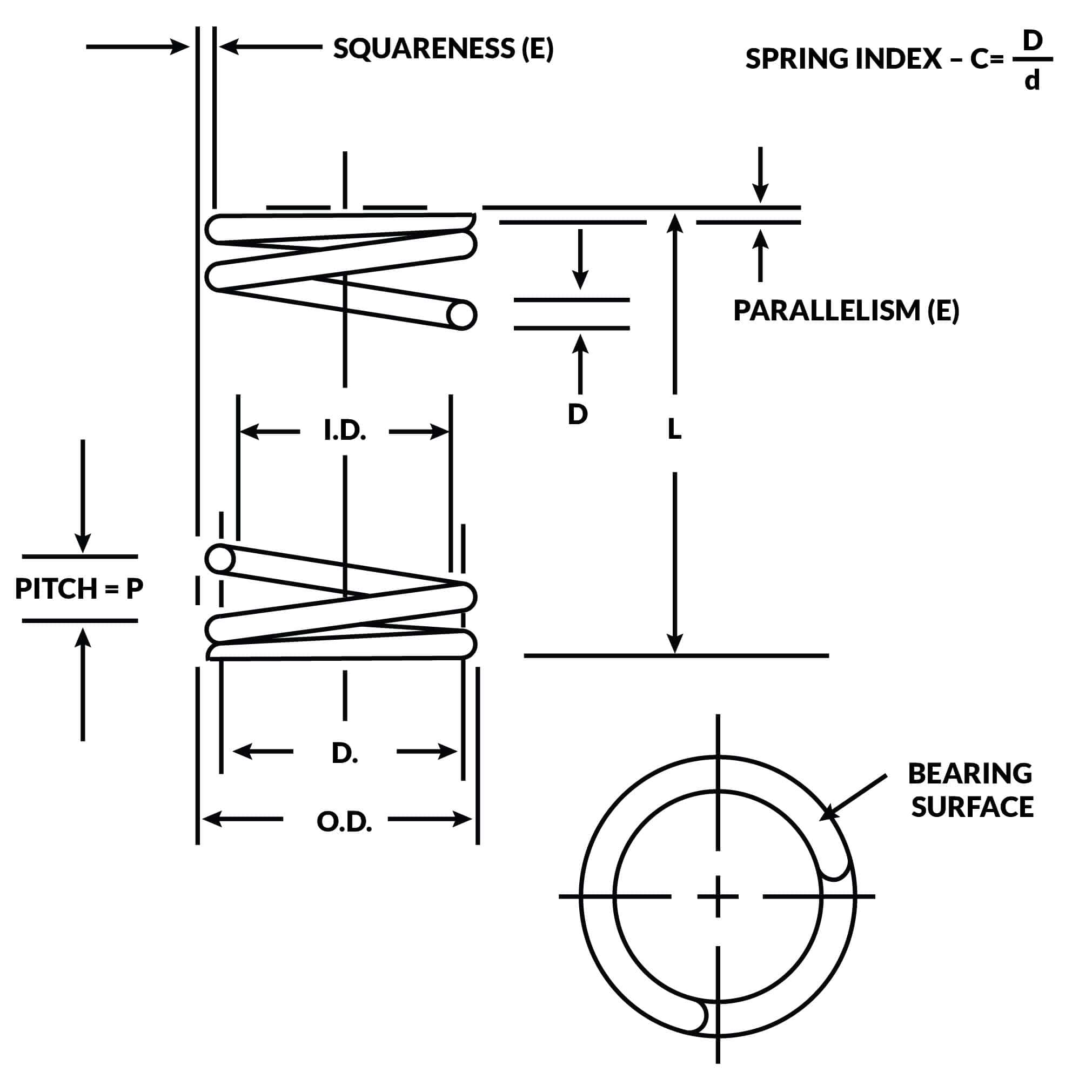Get unique, complex parts easily. No matter your requirements, Chaoyi Spring creates hard-to-produce coil springs and wire forms.
Let us help you create the custom wire form you need, from S-hooks and J-hooks to utility hooks and more.
We work closely with customers across a wide range of industries, helping them design and manufacture made-to-order parts.
Why choose Chaoyi Spring? We prioritize customer-focused collaboration, modern equipment and the latest technology to make your parts per print.
Find the information and guidance you need, from measuring a spring to learning about materials, placing an order and much more.
Plastic wave springs, also known as wave washers or Belleville springs, offer a unique blend of flexibility, resilience, and affordability, making them a popular choice for various applications across multiple


Plastic wave springs, also known as wave washers or Belleville springs, offer a unique blend of flexibility, resilience, and affordability, making them a popular choice for various applications across multiple industries. Unlike traditional coil springs, wave springs are designed with a series of concentric waves, creating a distinct radial load distribution and a high spring rate. This article explores the advantages of plastic wave springs, delves into their diverse applications, and provides insights into their selection and design considerations.

Plastic wave springs bring a plethora of benefits to the table, making them a compelling choice over traditional springs in many situations.
**1. Cost-Effectiveness:** One of the most significant advantages of plastic wave springs is their affordability. They are typically manufactured from readily available and inexpensive plastics, making them a cost-effective solution compared to metal springs, particularly for high-volume applications.
**2. Lightweight and Durable:** Plastic wave springs are remarkably lightweight, reducing the overall weight of assemblies and minimizing stress on supporting structures. Despite their lightweight nature, they offer excellent durability and resistance to wear and tear, making them suitable for applications requiring long service life.
**3. Chemical Resistance:** Many plastic wave springs are engineered to resist a wide range of chemicals, making them ideal for use in corrosive environments. This property is particularly beneficial in industries like chemical processing, food processing, and pharmaceutical manufacturing, where exposure to harsh chemicals is common.
**4. Flexibility and Customization:** Plastic wave springs can be easily molded into various shapes and sizes, allowing for greater flexibility in design and customization to meet specific application requirements. This adaptability ensures a perfect fit and optimal performance for a wide range of applications.
The versatility of plastic wave springs has led to their widespread adoption across numerous industries, including:
**1. Automotive Industry:** Plastic wave springs find applications in automotive components like door hinges, seat adjustments, and suspension systems. They provide the necessary support and spring force while contributing to lightweight construction and reducing overall vehicle weight.
**2. Electronics Industry:** Plastic wave springs are frequently employed in electronic devices like smartphones, laptops, and tablets. Their ability to withstand shocks and vibrations makes them ideal for protecting delicate components and ensuring long-term reliability.
**3. Medical Devices:** The biocompatible nature of certain plastics makes plastic wave springs suitable for use in medical devices like catheters, stents, and surgical instruments. They offer reliable spring force and flexibility, enabling precise manipulation and controlled deployment within the human body.
**4. Consumer Products:** Plastic wave springs are found in various consumer products, such as toys, appliances, and sporting goods. Their affordability, durability, and wide range of designs make them a preferred choice for these applications.
Selecting the right plastic wave spring for a specific application requires careful consideration of several design factors.
**1. Material Selection:** The choice of plastic material is crucial, taking into account factors like load capacity, temperature resistance, chemical compatibility, and desired spring rate. Common plastic materials used for wave springs include nylon, polypropylene, polyethylene, and thermoplastic elastomers.
**2. Spring Rate and Load Capacity:** The spring rate and load capacity of a plastic wave spring are determined by its design parameters, including the number of waves, wave thickness, and material properties. These parameters should be carefully selected to ensure the spring can withstand the required load without exceeding its elastic limit.
**3. Environmental Conditions:** The intended operating environment must be considered when designing plastic wave springs. Factors like temperature, humidity, and exposure to chemicals can affect the performance and longevity of the spring.
Plastic wave springs have proven to be a versatile and resilient solution for various applications, offering a compelling combination of cost-effectiveness, lightweight construction, durability, and chemical resistance. Their adaptability, customization options, and wide range of applications have established them as a valuable component in numerous industries. By carefully considering design factors like material selection, spring rate, and operating environment, engineers can effectively leverage the advantages of plastic wave springs to achieve optimal performance and longevity in their designs.
As technology advances and the demand for lightweight, durable, and cost-effective solutions continues to grow, plastic wave springs are poised to play an even more prominent role in various industries. Their versatility and adaptability make them a valuable asset for designers and engineers seeking innovative and reliable solutions for their applications.
Browse some of the custom wire forms and springs that we manufacture. Don’t see what you need? We specialize in made-to-order products that meet your application requirements.
Visit Our GalleryNeed a custom wire form or coil spring? We make it work. Fill out the contact form and a representative will respond within 1 business day. If you have a PDF or CAD file, you can submit to request a quote.